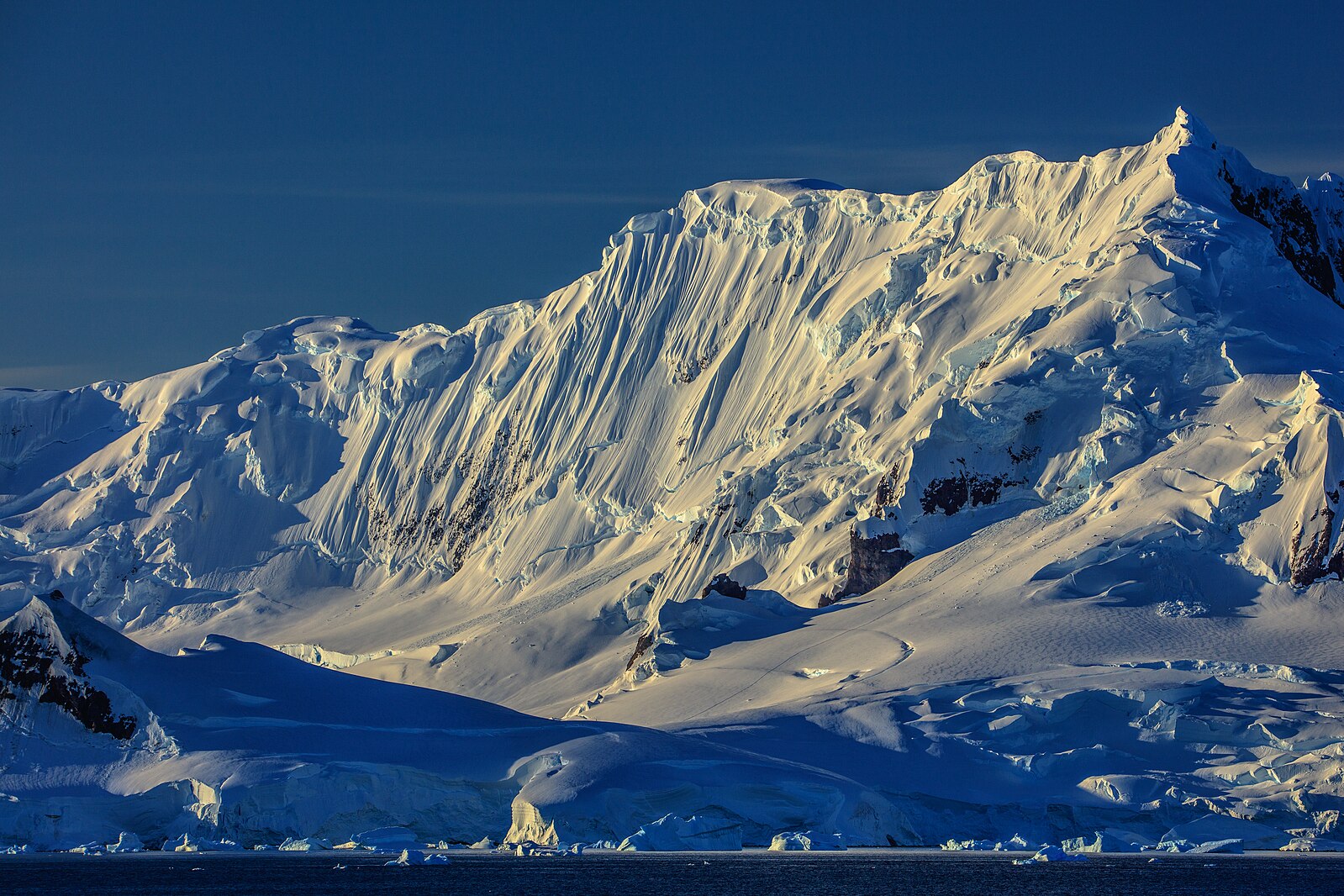
Arête Glacier Initiative
Year
2024
Grant Level
Scale Partner
Build Grant (Completed)
Focus Area
Website:
areteglaciers.orgThere is increasing evidence that the world is at significant risk of catastrophic sea-level rise (SLR) this century from the rapid collapse of Thwaites Glacier in West Antarctica (dubbed the Doomsday Glacier by Rolling Stone), which flows into the Amundsen Sea. Recent research suggests Thwaites and the broader West Antarctic Ice Sheet are now unstable and heading toward a collapse that will raise sea levels by 1-2 meters – requiring trillions of dollars in infrastructure to be built for protection, wiping out low-lying coastal areas and countries, and creating half a billion or more climate refugees. Unfortunately, our understanding of glacial processes, particularly at the glacial bed and ice-ocean interface, is vastly inadequate to develop reliable projections of SLR and evaluate opportunities for slowing glaciers to reduce its rate. The best available sea-level rise models significantly underestimate observed rates of ice flow and calving due to a lack of observational and experimental data. Despite this uncertainty and the existential threat posed by glacier destabilization in West Antarctica, funding from most of the major Antarctic research programs, particularly in the US, has been declining for decades. The only realistic strategy for avoiding catastrophic SLR is to intervene directly to address the key factors destabilizing and accelerating Thwaites. Arête Glacier Initiative is focused on advancing research to better forecast the risk of sea-level rise and evaluate potential solutions for stabilizing the West Antarctic Ice Sheet to prevent or mitigate catastrophic sea-level rise, with a focus on Thwaites Glacier.
Program Personnel

Brent Minchew
Chief Scientist
Read more
Dr. Brent Minchew is a Texas native and former Marine. He served with Marine One and deployed internationally before transitioning to academia. Now an Associate Professor at MIT and Chief Scientist of the Arête Glacier Initiative, Brent studies the mechanics of glacier flow with an emphasis on the physical processes that will govern rates of sea-level rise in the coming decades. He holds BS and MS degrees in Aerospace Engineering from the University of Texas at Austin and a PhD in Geophysics from Caltech.

Lauren Mahle
Fellow and Program Director
Read more
Lauren Mahle is the Director of Strategic Programs and Partnerships at Arête Glacier Initiative. Prior to joining Arête, she managed the technology and human ingenuity grants portfolio at the National Geographic Society. She earned a BS in electrical engineering from the University of Notre Dame, and an M.B.A. from the University of Wisconsin.
Seed Grants
ARC’s Seed grants will provide early-stage funding to catalyze promising ideas addressing catastrophic climate risks.
ARC Seed grants support promising ideas with exploratory efforts, scoping studies, concept development, early-stage research, and small pilot projects, to help develop and refine innovative concepts or unblock initial barriers.
Timeline: ARC Seed grants are provided for 3-6 month engagements.
Grant Amount: ARC’s Seed grants generally provide $30–100K in funding as well as deep engagement on project design and strategy.
Turn your climate ideas into actionable programs.
Apply for a Seed Grant.
-
Inland Sea Reflooding
Amir AghaKouchak
2024–2025
-
Tracking Tropospheric Sulphur
Colleen Golja, Christina Last, Carla Roesch
2025
-
Undercurrent
Kelly Kinetic, Shaun Kinetic, Lauren Murray, Lea Eaton
2025
-
Enhancing Global South Capacity to Address Climate Emergencies
Rose Mutiso
2025
-
Planning for Catastrophic Climate Risk
Luke Kemp
2025
-
Carbon Removal as a National Security Imperative
Noah Deich
2025
-
AI-Powered Social Science for Climate Emergencies Research
Allegra Cohen
2025
-
The Arctic Climate Emergency Response (ACER) Initiative
Charlotte DeWald
2025
-
The Climate Emergencies Resilience Lab
Deep Sciences Ventures
2025
Build Grants
ARC’s Build grants will enable leaders to turn promising concepts into actionable programs.
ARC Build grants support the development of independent organizations or partnerships with existing entities, focusing on activities such as program planning, roadmapping, early implementation, and organizational development.
Timeline: ARC Build grants are provided for 6-month to 1-year engagements.
Grant Amount: ARC’s Build grants generally provide $100-400k in funding as well as strategic and operational support, and a variety of technical expertise.
Turn your climate ideas into actionable programs.
Apply for a Build Grant.
-
Arête Glacier Initiative
Brent Minchew, Lauren Mahle
2024–2025
-
The Arctic Climate Emergency Response (ACER) Initiative
Charlotte DeWald
2025
Scale Partners
ARC’s Scale grants will empower our partner organizations to achieve significant impact by advancing key program objectives.
ARC’s Scale Partnerships provide targeted support to help organizations working on challenges aligned with ARC’s mission to enhance their efforts addressing climate risks.
In addition to resources, we offer technical expertise, strategic guidance for organizational growth and research, and hands-on support in fundraising and partnership development. By working closely with our partners, we ensure that promising initiatives are well-positioned to succeed and grow.
Get in touch
-
Reflective
Dakota Gruener, Doug MacMartin
2024–2025
-
Arête Glacier Initiative
Brent Minchew, Lauren Mahle
2024–2025